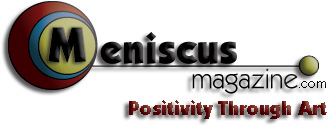One
of the ways the United States distinguishes itself from so many
countries in this world is by its freedoms, primarily of speech,
but also of the press and of religion. These are the freedoms that
make us not only the most powerful nation on Earth but also one
uniquely capable of change. Our freedoms are the source of our strength
and the key to our future growth, the gateway to life, liberty and
the pursuit of happiness.
Bound up in the notion of freedom is
the mechanism of choice.
We have the freedom to choose the words
we speak and write, and also to choose the religious faith (or lack
thereof) that inspires us. When people talk about reproductive rights
for women, they talk about the ‘right to choose.’ Freedom
is about choice and choices.
And so it’s particularly odd,
in a nation whose strength is so bound up with choice to have just
two choices at the ballot box, Democrat or Republican. Certainly,
there are instances when other choices are available, but so seldom,
and almost never at the congressional and presidential levels, as
to be insignificant in an overall discussion of political choice.
We pretend to have popular democracy
in this country, especially when chiding our foreign friends (and
enemies) who live under dictatorships or theocracies, but in truth
what we have is a plutocracy, a rule by the wealthy. And while many
readers will construe this as an attack on Republicans, it is rather
a criticism of both parties, the ways they finance themselves, the
ways they peddle influence and the ways they work to exclude other
political options from emerging on the national stage.
Is there a great difference between
a nation of 300 million (us) with two choices at the polls, and
a country of say 23 million (Saudi Arabia) with only one choice
(i.e. no choice at all)? Everyone laughed when Henry Ford said you
could have your Model T in any color you wanted as long as that
color was black, but we all bumble onward with the Republicans and
the Democrats as our only political choices.
And isn't it funny that the Republicans
and Democrats are the ones who could do away with the electoral
college system, changing our method just enough to make every vote
count, to rely on the will of the people rather than caucusing each
state and counting voting blocks to determine who will get the most
powerful position in the whole world?
A true, popular vote would more credibly
represent the progress of a third party, or even a fourth, allowing
a loose band of, just as an example, Green Party voters spread across
wide swaths of states to band together and make their presence felt
in national policy decisions by virtue of their numbers rather than
their cash. Rather than garnering zero electoral votes, a third
party candidate might finish the election with 1 million actual
votes, a not insignificant tally and one that might accord due respect
to an emerging platform or even a single, worthwhile idea.
Now, clearly the Republicans and Democrats
each present credible solutions to some of the problems facing our
country. We remain, despite the drawbacks of the two party system,
the most powerful nation on Earth. But what we need is more ways
to solve the very real problems Americans have, with healthcare,
with the tax system, with foreign policy and unemployment. If you
were a business looking for a vendor to complete a big and complicated
project (like running the world’s top democracy), you would
sure as hell solicit more than two bids, wouldn't you?
So as the 2004 Presidential Election
forges onward and plastic-haired commentators sift through the ashes
to tell us what America thinks about John Kerry and his (in)ability
to topple George W. Bush, realize that the entire debate about our
future is already framed as a choice between two fairly similar
ways of doing things. And think about how involved you are in that
choice, how empowered you feel to make a difference in the way our
country operates.
Given the paucity of choices, how free
do you really feel?
Emlyn Lewis |

